10 books to add to your reading list in September
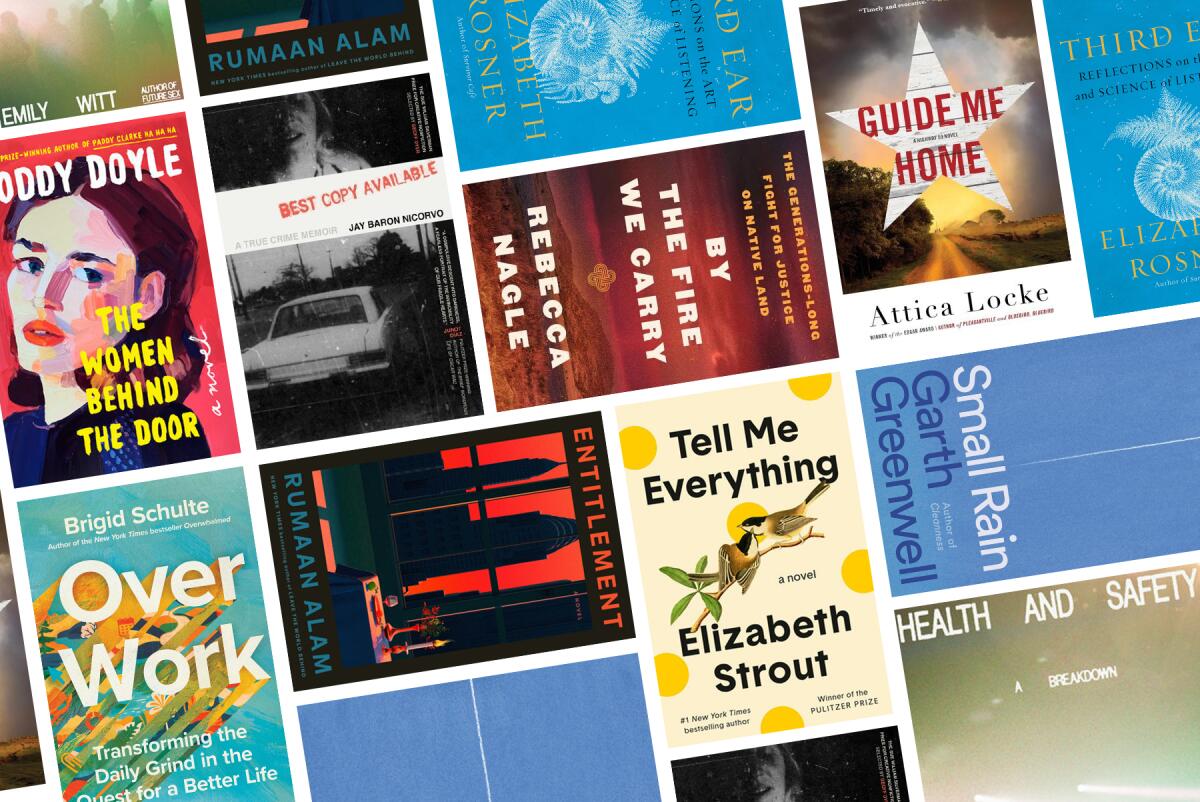
- Share via
Critic Bethanne Patrick recommends 10 promising titles — fiction and nonfiction — to consider for your September reading list.
September’s novels come from authors with big footprints and include literary fiction, crime fiction and commercial fiction about characters who leave their own big footprints. Some are beloved returning characters; others introduce new, complex voices. Nonfiction titles include memoirs, reportage and historical narrative, each book packed with passion and purpose. Happy reading!
FICTION
Small Rain: A Novel
By Garth Greenwell
Farrar, Straus and Giroux: 320 pages, $28
(Sept. 3)
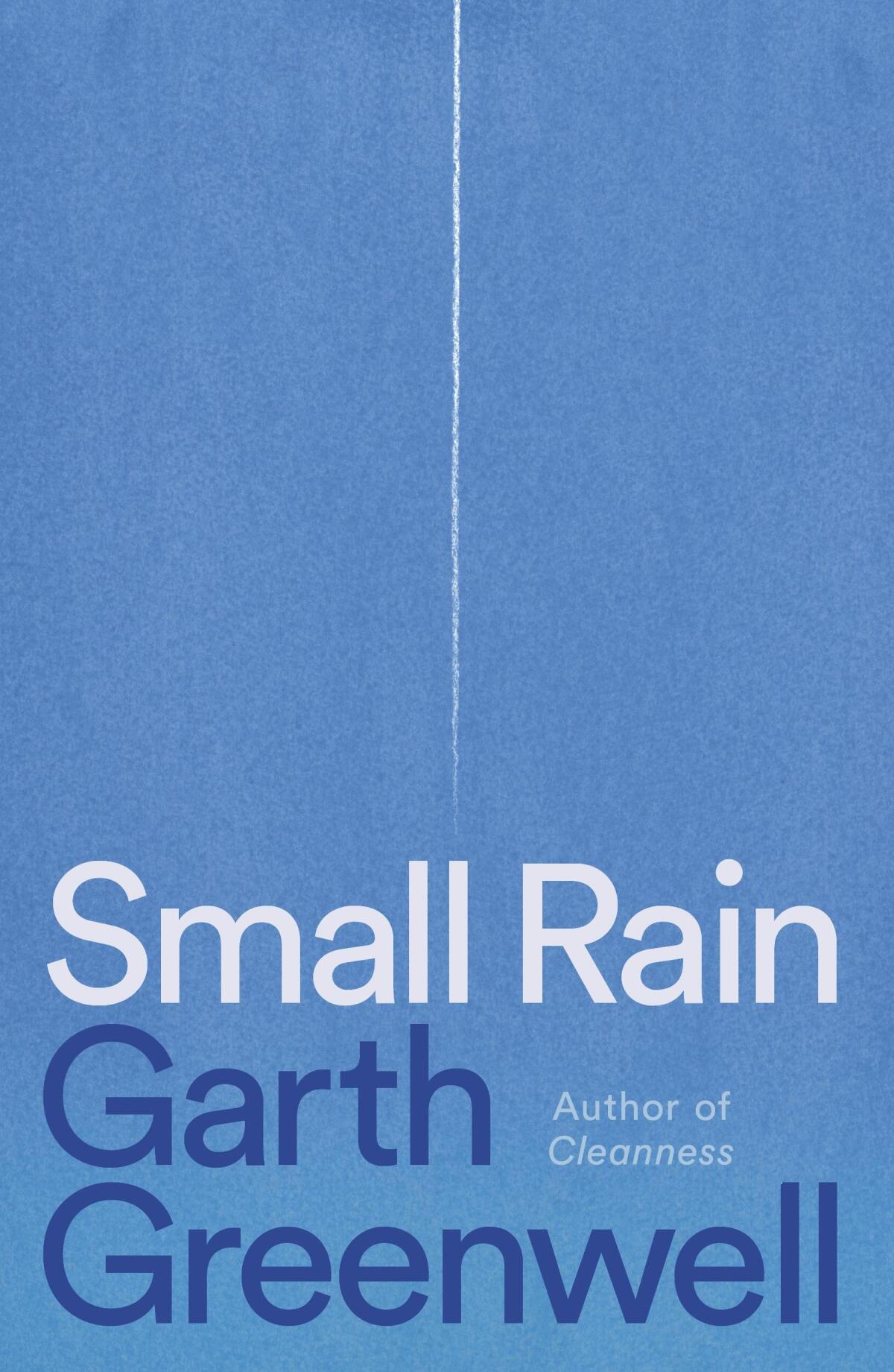
Greenwell’s previous work (his novel “What Belongs to You” and his stories in “Cleanness”) amply demonstrate his brilliance in writing about sex and desire, as well as his brilliance with language. Now he turns the latter toward writing about pain and dependence, in a stark and, yes, brilliant story of a 40-ish gay poet whose aortal tear forces him to confront not just his own mortality but also how he and his partner will move forward in their lives if he recovers.
Guide Me Home: A Novel
By Attica Locke
Mulholland Books: 320 pages, $29
(Sept. 3)
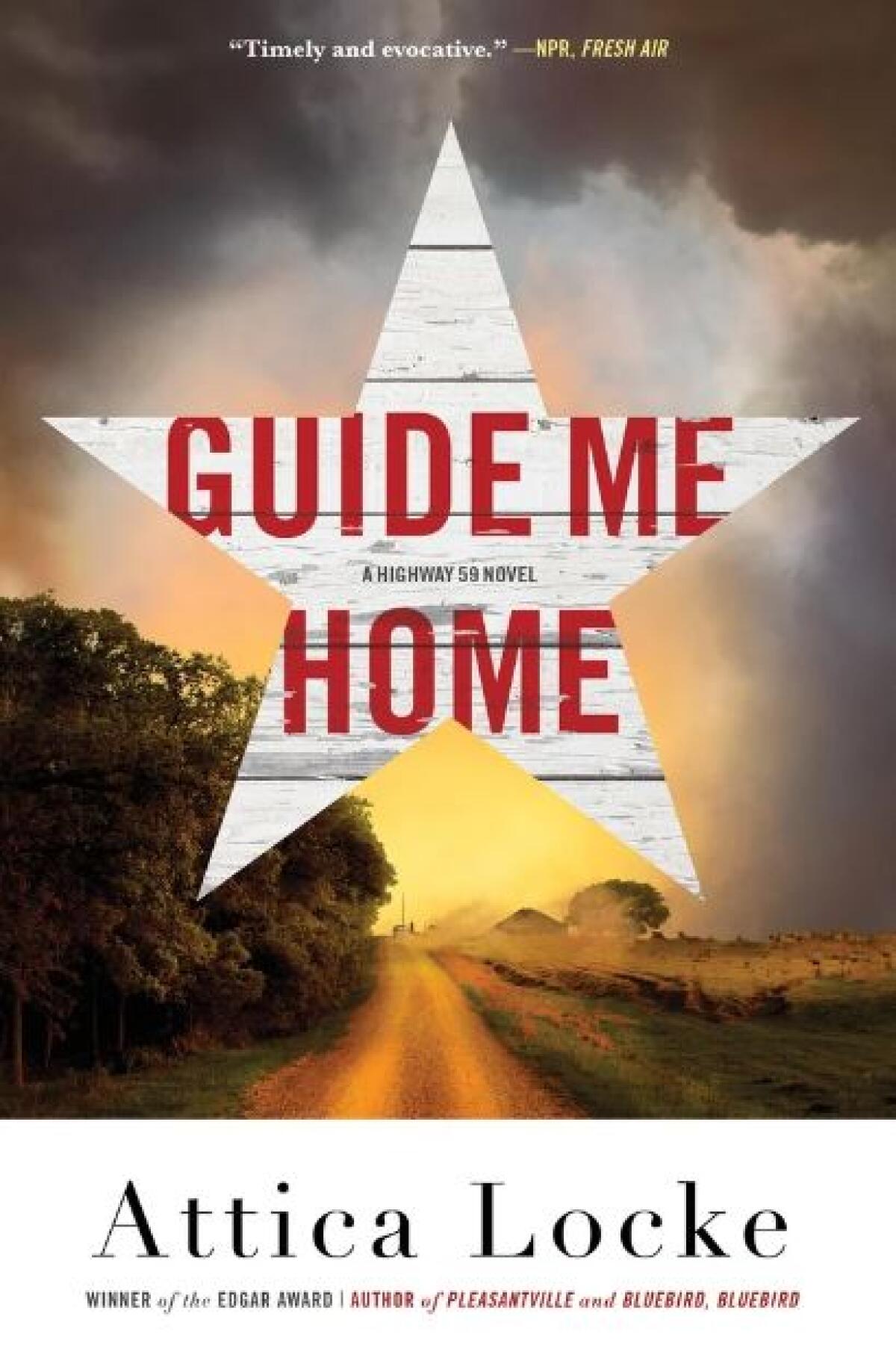
Texas Ranger Darren Matthews, in the first two Highway 57 novels, coped with East Texas racism and murder. In this third and final title of the trilogy, Matthews has retired early, hoping for a quiet life, when his chaotic mother appears and begs him to investigate a missing Black sorority girl. Unfortunately, even the slightest questions asked about that girl reveal corruption so ugly that Matthews has to rely on his mother for the truth to be found.
The Women Behind the Door: A Novel
By Roddy Doyle
Viking: 272 pages, $29
(Sept. 10)
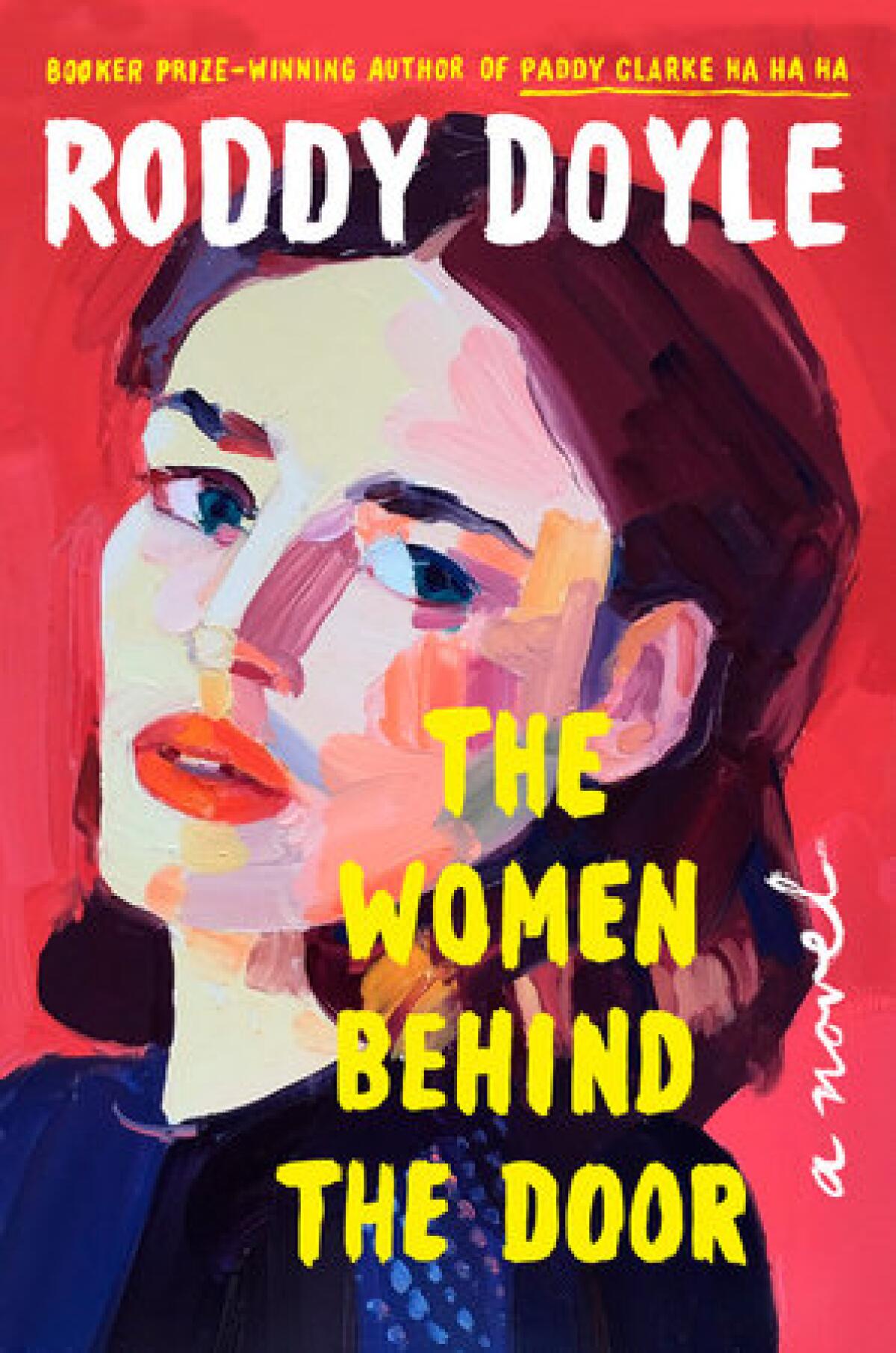
Readers first encountered the addicted and abused Paula Spencer in Doyle’s 1996 “The Woman Who Walked Into Doors” and again in the 2006 “Paula Spencer.” They’ll be glad to find her, at 66 a widow and grandmother, content with her job, her boyfriend Joe and her children’s stable families. But when her oldest daughter, Nicola, comes to stay, planning to leave her husband and children, the two women must reckon with old, dark memories.
Tell Me Everything: A Novel
By Elizabeth Strout
Random House: 352 pages, $30
(Sept. 10)
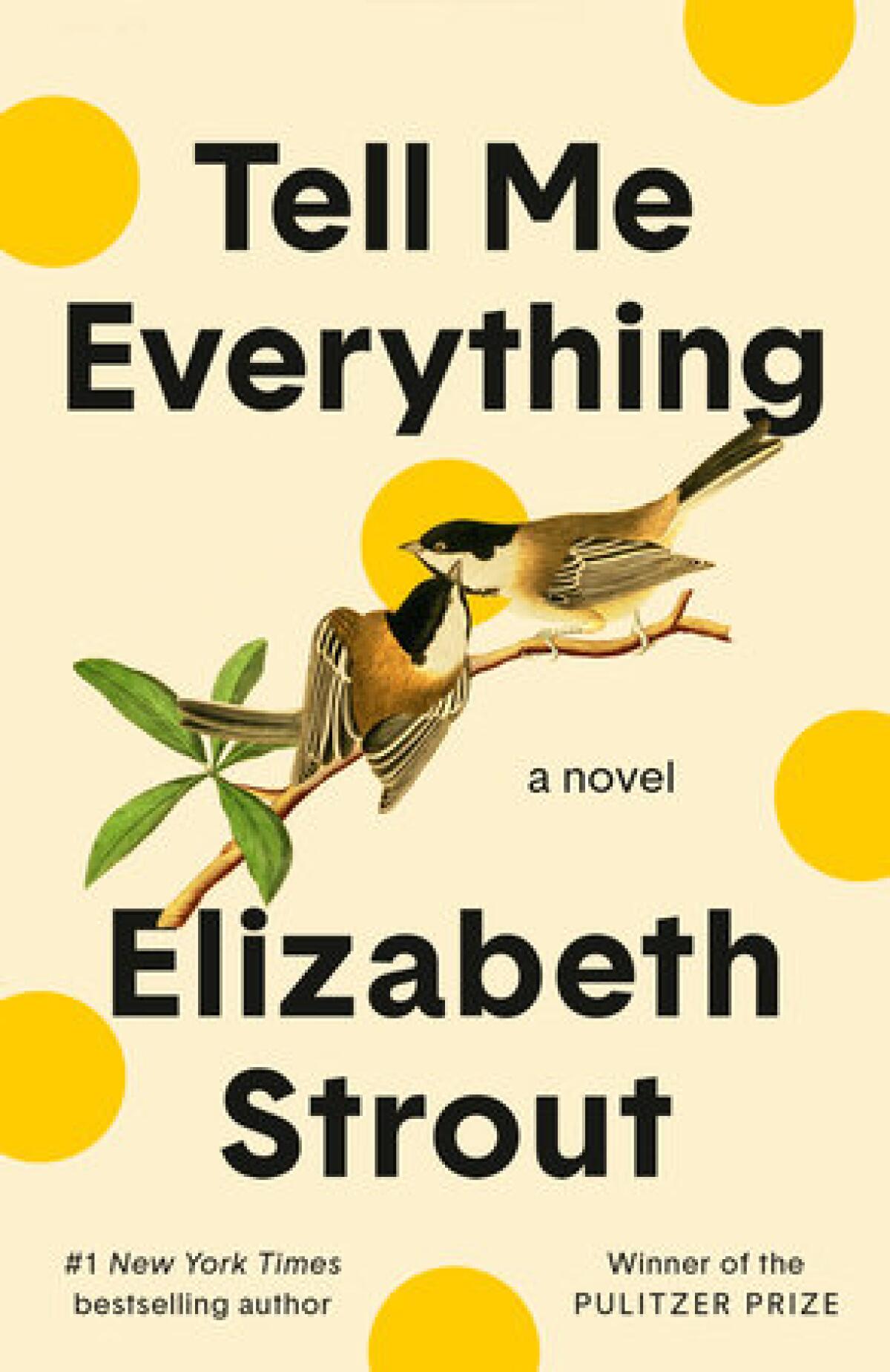
Strout’s Amgash books, of which this is the fifth and final installment, began with “My Name Is Lucy Barton”; few of us could have predicted that narrator would wind up in Maine during the pandemic or that she’d be living with her ex-husband William. Here, as attorney Bob Burgess, Lucy’s dear friend, is accused of murder, she even winds up meeting Strout’s famous character Olive Kitteridge in the latter’s retirement community.
Entitlement: A Novel
By Rumaan Alam
Riverhead: 288 pages, $30
(Sept. 17)
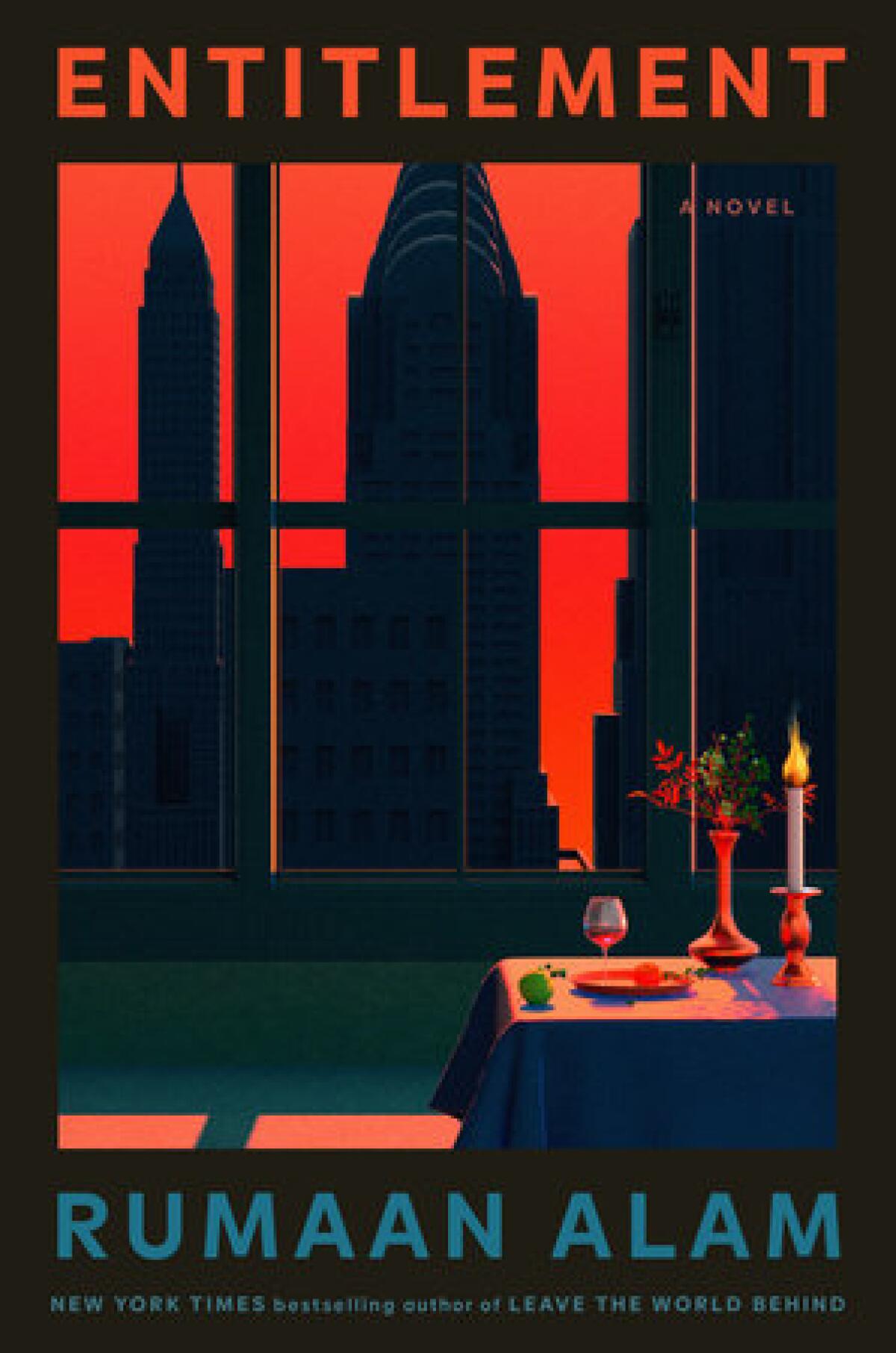
Brooke Orr identifies as Black and follows the life trajectory laid out by her adoptive white mother, leading Orr to be in charge of an octogenarian billionaire’s charitable foundation. She finds herself flummoxed when an older Black woman rejects the foundation’s money. Alam never shirks uncomfortable scenes or questions, and here, he pits class against race against greed against freedom, and joy.
NONFICTION
Best Copy Available: A True Crime Memoir
By Jay Baron Nicorvo
University of Georgia Press: 240 pages, $29
(Sept. 1)

Nicorvo was a loving family man who was also a published author (“The Standard Grand”) and college professor. But the long-ago violent crimes he and his single mother endured at the hands of men had affected them both. The past is murky, though: The scanned PDF of a photocopy of her report was stamped “best copy available.” This remarkably honest and sometimes humorous memoir shows how one family ended the cycle of abuse.
By the Fire We Carry: The Generations-Long Fight for Justice on Native Land
By Rebecca Nagle
Harper: 352 pages, $32
(Sept. 10)
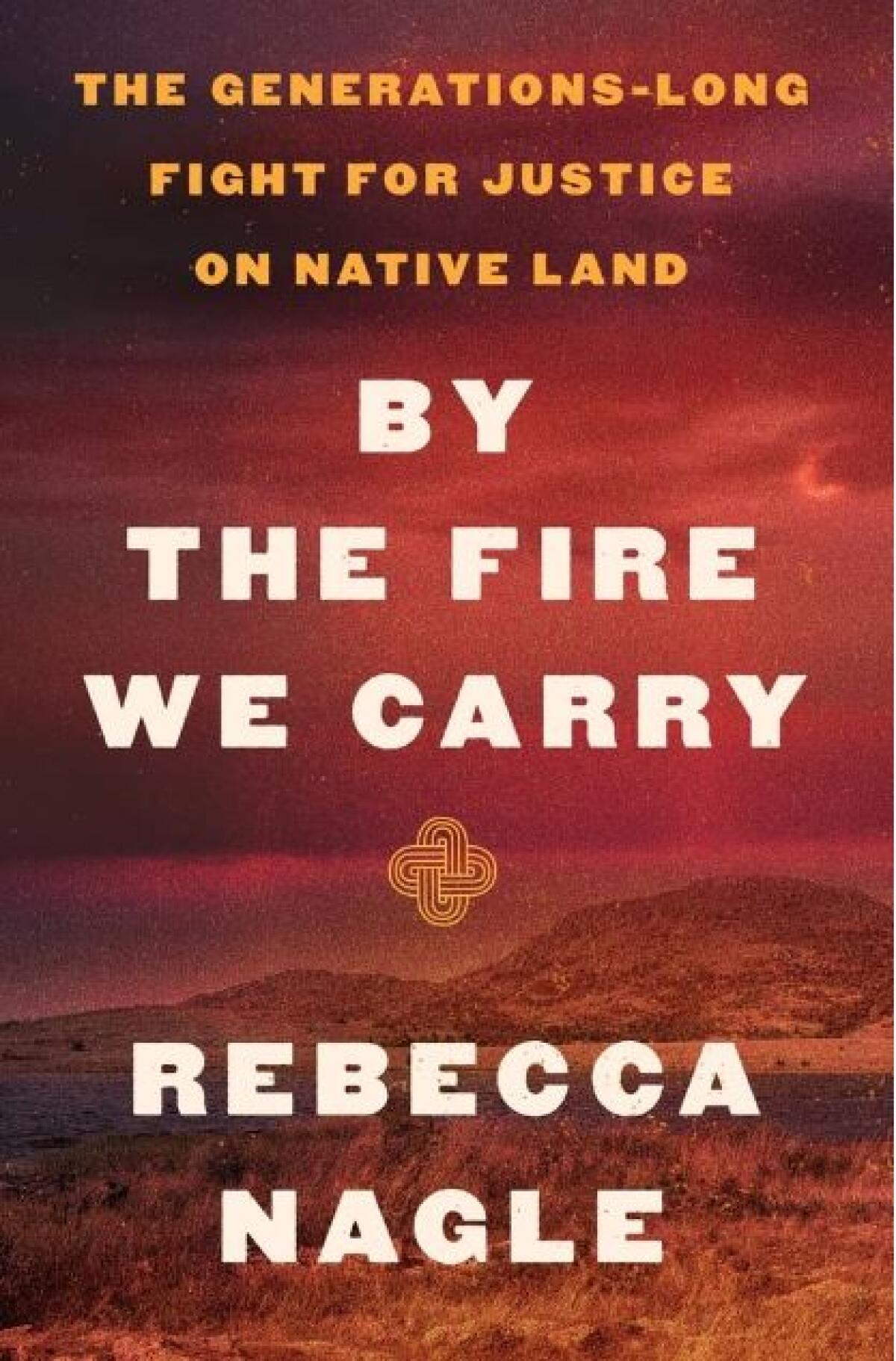
Nagle belongs to the Cherokee Nation, and knowledge of her own heritage as well as that of the Five Tribes undergirds her fluid and comprehensive account of how U.S. policy has resulted in so much injustice to Native Americans. As she leads up to the 2020 Supreme Court ruling on Sharp vs. Murphy that granted the Muscogee Nation land in Oklahoma for resettlement, Nagle gives voice to frustrations Native people have experienced.
Over Work: Transforming the Daily Grind in the Quest for a Better Life
By Brigid Schulte
Henry Holt: 432 pages, $32
(Sept. 17)
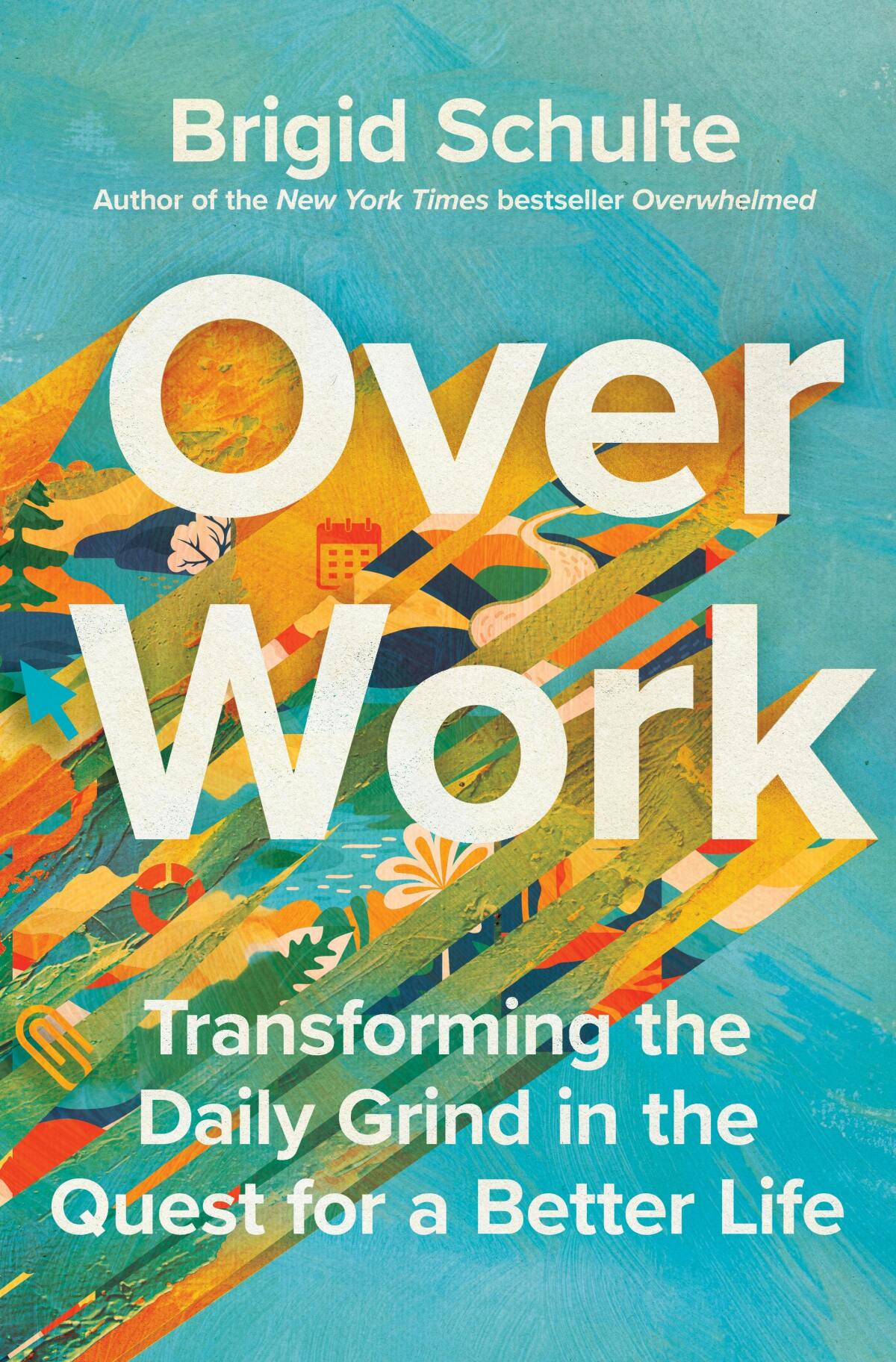
The journalist who brought us 2014’s “Overwhelmed,” about our overcommitted lives, returns with a book specifically about what doesn’t work when it comes to the American way of employment. Schulte looks at the current picture and the mid-20th century backstory of how we got here and examines other cultures’ methods of work-life balance. Her conclusions offer no pat solutions, rather underscoring the need for change.
Third Ear: Reflections on the Art and Science of Listening
By Elizabeth Rosner
Counterpoint: 240 pages, $27
(Sept. 17)
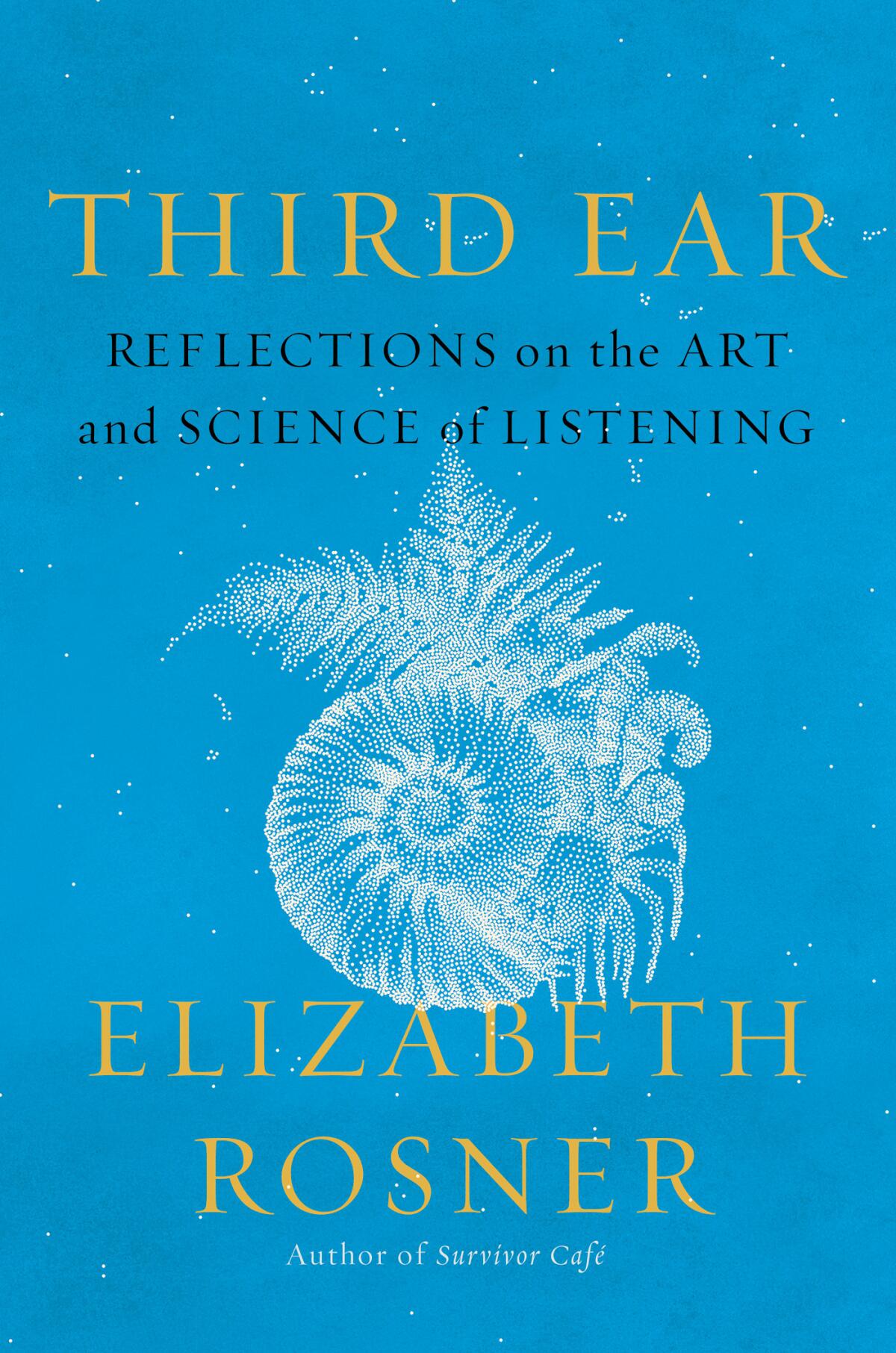
Rosner’s parents, Holocaust survivors, spoke six languages at home, and as the young Rosner listened and learned, she realized that the soundscapes of our lives affect us at levels large and small. As an adult writer, she weaves together her own stories alongside interviews with experts of all kinds to demonstrate how deep listening can foster better communication and empathy, in a lively, perceptive book about how and what we hear.
Health & Safety: A Breakdown
By Emily Witt
Pantheon: 272 pages, $27
(Sept. 17)
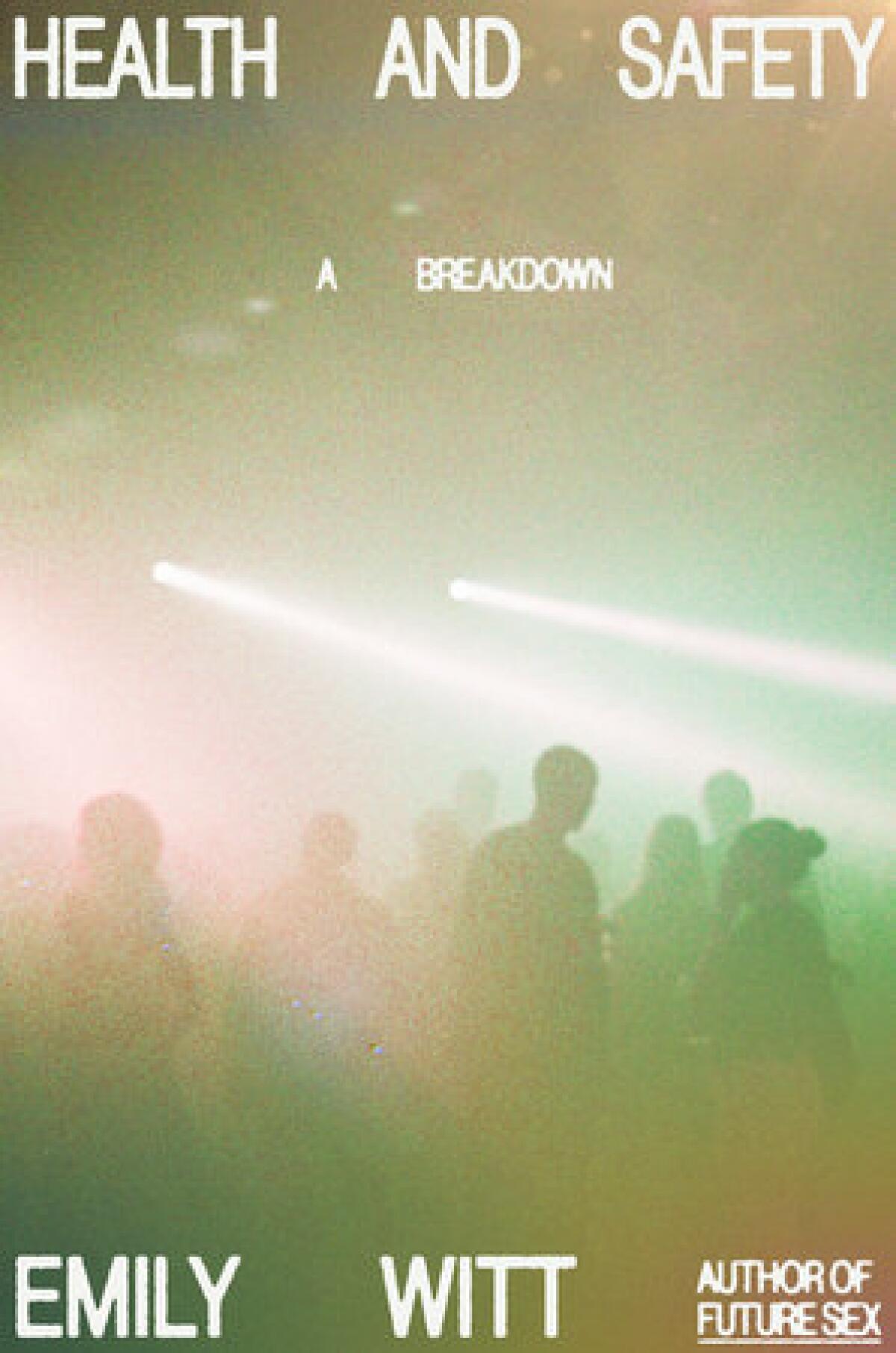
Witt, a journalist whose first book, “Future Sex,” was a brave look into everything beyond monogamy, describes what happened when, in 2016, she chose to give up antidepressants and try psychedelic substances. Soon the author had joined the New York City dance-club scene, all while maintaining her regular work during the day. She — and our country — were heading for a breakdown, and with her characteristic honesty, Witt tells the story of both.
More to Read
A cure for the common opinion
Get thought-provoking perspectives with our weekly newsletter.
You may occasionally receive promotional content from the Los Angeles Times.






